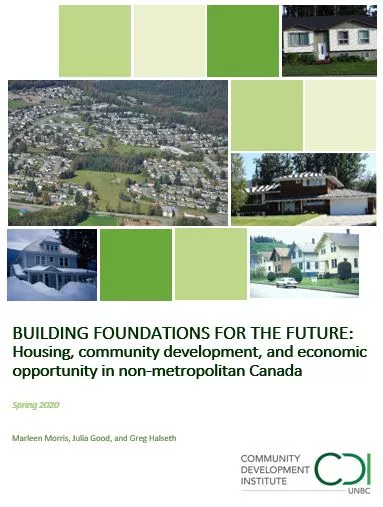Building Foundations for the Future: Housing, Community Development, and Economic Opportunity in Non-Metropolitan Canada

In non-metropolitan Canada, housing has become a key constraint on economic and community development. This study by the Community Development Institute at the University of Northern British Columbia identifies consistent patterns of housing issues across non-metropolitan Canada and finds that housing stock no longer meets community needs and expectations. With large parts of the workforce close to retirement, housing has a major role to play in attracting and retaining a young workforce as well as ensuring options for aging in place. While demographic aging, the increase of one- and two-person households, and the trend to smaller family sizes point to the need for a diverse range of smaller homes, housing stock in non-metropolitan communities features an oversupply of large single-detached homes. Aging housing stock predominantly constructed before 1980 poses affordability issues due to a need for major repairs and energy inefficiency, and is often lacking accessibility standards and modern aesthetic appeal. More data is needed to inform housing programs and policies that support the renewal of the existing housing stock and encourage new construction, and to help communities create service linkages where housing gaps have to be filled by service infrastructure.